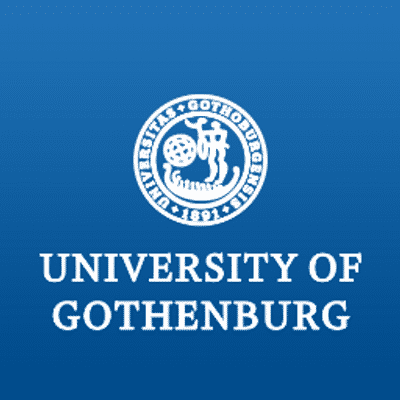预约演示
更新于:2025-05-07
PNU-96391
更新于:2025-05-07
概要
基本信息
权益机构- |
最高研发阶段临床2期 |
首次获批日期- |
最高研发阶段(中国)- |
特殊审评- |
登录后查看时间轴
结构/序列
分子式C15H23NO2S |
InChIKeyGZVBVBMMNFIXGE-CQSZACIVSA-N |
CAS号146798-66-5 |
关联
12
项与 PNU-96391 相关的临床试验NCT05641623
OSU6162 as add-on in SSRI/SNRI-resistant Depression (ODEN): a Double-blind, Placebo-controlled Evaluation of Efficacy and Safety
This is a randomised, placebo-controlled, parallel-group trial comparing OSU6162 at flexible dosage with placebo as add-on to treatment with an SSRI/SNRI in patients with depression that have not responded to treatment with an SSRI/SNRI per se for at least 6 weeks. The study will last for 6 weeks, after which those not having responded will leave the trial and those having responded will be offered to continue treatment without unblinding for another 4 weeks. Optional Substudy 1 and 2: Baseline and treatment-associated change in reward-related striatal activity per fMRI-assessment. (Substudy 1).
Brain signal variability per fMRI-assessment. (Substudy 1). Probabilistic Reward Task (PRT). (Substudy 2).
While assessment of the efficacy and safety of OSU6162 is the main objective of this study, possible differences between the two treatment groups with respect to a number of biomarkers in serum will also be explored.
Multicenter trial: Multiple sites four Gothenburg, Lund, Stockholm and Uppsala.
Brain signal variability per fMRI-assessment. (Substudy 1). Probabilistic Reward Task (PRT). (Substudy 2).
While assessment of the efficacy and safety of OSU6162 is the main objective of this study, possible differences between the two treatment groups with respect to a number of biomarkers in serum will also be explored.
Multicenter trial: Multiple sites four Gothenburg, Lund, Stockholm and Uppsala.
开始日期2022-04-21 |
申办/合作机构 |
NCT05296356
OSU6162 in Bipolar Depression: An Open-label, Flexible Dose Study (OBID)
An explorative, open label, single armed, flexible dose, single center, phase IIa study of 8 weeks, initiated in subjects with bipolar depression. The study will consist of 9 visits and 1 safety visit.
Subjects with a primary diagnosis of bipolar disorder (type 1 or 2) currently in an acute depressive phase (i.e. bipolar depression) and being on stable medication with at least one mood stabilizer.
Subjects with a primary diagnosis of bipolar disorder (type 1 or 2) currently in an acute depressive phase (i.e. bipolar depression) and being on stable medication with at least one mood stabilizer.
开始日期2021-10-25 |
申办/合作机构 |
NCT03209830
OSU6162 in the Treatment of Fatigue and Other Neuropsychological Sequelae After Aneurysmal Subarachnoid Hemorrhage - A Double-blind, Randomised, Placebo-controlled Study
Many people who have undergone subarachnoid hemorrhage from an aneurysm (an artery of a vein in the brain) struggle with a pronounced fatigue as well as a number of other sequelae such as impaired concentration, memory deficits and emotional problems. Exhaustion is often permanent and can lead to a significant worsening of quality of life and be the cause of disability. This condition does not only have major consequences for the individual who is affected, but also for their families and for society. So far no effective treatment for fatigue has been found. The drug OSU6162 has shown a beneficial effect on fatigue and other impairments after stroke and after traumatic brain injury. There is good reason to believe that OSU6162 can also improve fatigue and other impairments after aneurysm bleeding and thus increase the chance of returning to the level of daily function they had before the bleeding. The study is double blinded and measures the effect of OSU6162 and placebo on fatigue and neuropsychological function.
开始日期2017-09-05 |
申办/合作机构 |
100 项与 PNU-96391 相关的临床结果
登录后查看更多信息
100 项与 PNU-96391 相关的转化医学
登录后查看更多信息
100 项与 PNU-96391 相关的专利(医药)
登录后查看更多信息
68
项与 PNU-96391 相关的文献(医药)2023-01-01·Frontiers in molecular neuroscience
Combined treatment with Sigma1R and A2AR agonists fails to inhibit cocaine self-administration despite causing strong antagonistic accumbal A2AR-D2R complex interactions: the potential role of astrocytes.
Article
作者: Zhou, Zilong ; Fuxe, Kjell ; Filip, Malgorzata ; Borroto-Escuela, Dasiel O ; Suder, Agata ; Frankowska, Malgorzata ; Romero-Fernandez, Wilber ; Wydra, Karolina ; Bartolini, Marco ; Benitez-Porres, Javier ; Lopez-Salas, Alexander
2023-01-01·Molecular Psychiatry
Hypodopaminergic state of the nigrostriatal pathway drives compulsive alcohol use
Article
作者: Mallet, David ; Bartolomucci, Magali ; Joly, Fanny ; Chovelon, Benoit ; Vossier, Frédérique ; Carcenac, Carole ; Guicherd, Denis ; Dufourd, Thibault ; Deransart, Colin ; Boulet, Sabrina ; Carnicella, Sebastien ; Goutaudier, Raphaël
2022-11-23·Journal of the American Chemical Society
Synthesis of Stereoenriched Piperidines via Chemo-Enzymatic Dearomatization of Activated Pyridines
Article
作者: Angelastro, Antonio ; Whitehead, Roger C. ; Sangster, Jack J. ; Pirvu, Lucian ; Thorpe, Thomas W. ; Gilio, Amelia K. ; Nafie, Jordan W. ; Grogan, Gideon ; Finnigan, James D. ; Charnock, Simon J. ; Marshall, James R. ; Heath, Rachel S. ; Harawa, Vanessa ; Turner, Nicholas J.
100 项与 PNU-96391 相关的药物交易
登录后查看更多信息
研发状态
10 条进展最快的记录, 后查看更多信息
登录
| 适应症 | 最高研发状态 | 国家/地区 | 公司 | 日期 |
|---|---|---|---|---|
| 难治性抑郁症 | 临床2期 | 瑞典 | 2022-04-21 | |
| 躁郁症1型 | 临床2期 | 瑞典 | 2021-10-25 | |
| 慢性疲劳综合征 | 临床2期 | - | - | |
| 慢性疲劳综合征 | 临床2期 | - | - | |
| 颅内动脉瘤1 | 临床前 | 挪威 | 2017-09-05 | |
| 疲劳 | 临床前 | 挪威 | 2017-09-05 | |
| 中风后遗症 | 临床前 | 瑞典 | 2017-03-20 | |
| 亨廷顿舞蹈病 | 临床前 | 美国 | 1999-12-31 | |
| 帕金森病 | 临床前 | 美国 | - | - |
登录后查看更多信息
临床结果
临床结果
适应症
分期
评价
查看全部结果
| 研究 | 分期 | 人群特征 | 评价人数 | 分组 | 结果 | 评价 | 发布日期 |
|---|
No Data | |||||||
登录后查看更多信息
转化医学
使用我们的转化医学数据加速您的研究。
登录
或

药物交易
使用我们的药物交易数据加速您的研究。
登录
或

核心专利
使用我们的核心专利数据促进您的研究。
登录
或

临床分析
紧跟全球注册中心的最新临床试验。
登录
或

批准
利用最新的监管批准信息加速您的研究。
登录
或

特殊审评
只需点击几下即可了解关键药物信息。
登录
或

生物医药百科问答
全新生物医药AI Agent 覆盖科研全链路,让突破性发现快人一步
立即开始免费试用!
智慧芽新药情报库是智慧芽专为生命科学人士构建的基于AI的创新药情报平台,助您全方位提升您的研发与决策效率。
立即开始数据试用!
智慧芽新药库数据也通过智慧芽数据服务平台,以API或者数据包形式对外开放,助您更加充分利用智慧芽新药情报信息。
生物序列数据库
生物药研发创新
免费使用
化学结构数据库
小分子化药研发创新
免费使用



